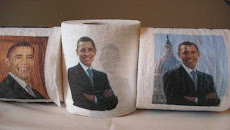How Chinese products are stealing Christmas
Dangerous toys, clothes, appliances, even baby strollers, pacifiers flood U.S. stores
Posted: December 07, 2009
9:47 pm Eastern
© 2009 WorldNetDaily

Zhu Zhu Pet |
WASHINGTON – Zhu Zhu Pets, furry robotic hamsters, are the hottest Christmas craze of 2009 – with millions being flown into the U.S. from China on 747s to keep up with the demand.
But, like so many other toys, clothes, appliances and even baby strollers and pacifiers on the market for holiday shoppers this season, they may be unsafe, say consumer watchdogs.
While Zhu Zhu pets have not faced a Consumer Product Safety Commission recall, a report from GoodGuide.com says they contain antimony, a toxic metal known as a carcinogen. The federal limit for antimony in products is 60 parts per million, while the Zhu Zhu has 93 parts per million in the fur and 103 in the nose.
"If ingested in high enough levels, antimony can lead to cancer, reproductive health and other human health hazards," said Dara O'Rourke, an associate professor of environmental science at U.C.-Berkeley and co-founder of GoodGuide.com. "If these toys aren't even meeting the legal standards in the U.S., then I would say that it isn't worth the risk for me to bring it into my household."
Sources in Washington say a recall of the toys is unlikely because of the sheer volume already sold – millions throughout the U.S. The Los Angeles Times also reported later that a review by the Consumer Product Safety Commission said the Zhu Zhu toys were "not out of compliance" with toy standards for antimony. And GoodGuide later updated its report explaining that it used a methodology for its testing that is different from federal testing methods.
But other items imported from China just in time for Christmas are the subjects of recalls. Of the 28 products recalled by the Consumer Product Safety Commission so far in November and December, 16 were manufactured in China.
U.S. distributors of these products are increasingly paying big fines.
This month, for instance, Excelligence Learning Corp. of Monterey, Calif., agreed to pay $25,000 in civil penalties for selling Chinese-made toy shaving brushes violating federal lead paint bans.
Also recalled by the CPSC for lead exposure were children's metal pendants sold by Team Work Trading of Los Angeles, Calif.
Bicycles are always a favorite Christmas gift for kids. But 6,400 distributed by Easton Sports of Scotts Valley, Calif., and manufactured in China were recalled this season because of stem failure that cause the rider to lose control.
About 10,000 children's art easels distributed by MacPherson's of Emeryville, Calif., and manufactured in China were recalled in the last 30 days for containing levels of lead that exceed federal limits.
But it's not just children's toys from China that are getting recalled and posing safety hazards. Kids' clothing has also been a target of the CPSC this holiday season. Various kinds of hooded sweatshirts have been targeted as strangulation hazards because of unsafe drawstrings. Some of these items are sold in upper-end department stores like Macy's and Dillards – not just Walmart.
Only one major recall this season was highly publicized. That was Maclaren USA's voluntary action to pull from stores baby strollers that resulted in at least 12 finger amputations. About 1 million of them were in circulation – manufactured, of course, in China. They sold for between $100 and $350.
Thinking about giving someone a kitchen appliance this year? Be warned.
Haier America Trading of New York, N.Y., voluntarily recalled nearly 54,000 blenders made in China when it was learned the blade assemblies came apart or broke, posing laceration risks.
Or maybe you were thinking about getting Dad a gas grill. About 663,000 Perfect Flame grills made in China and sold in Lowe's were voluntarily recalled because they posed burn hazards to users. They caused at least 40 fires resulting in burns to hands, arms and faces and at least one eye injury requiring surgery.
Power adapters used with IBM back-up disk hard drives, also made in China, were recalled when it was found they were failing and exposing live electrical contacts that posed shock hazards to consumers.
Maybe you thought a travel mug made in China was a safe gift. Think again. About 15,000 had to be recalled by the "Life Is Good" company when it was found they posed burn hazards.
And before you get that new baby a pacifier for the stocking this Christmas, be sure to check it out. Some 641,000 "Bobby Chupete" pacifiers had to be recalled this season because they pose a choking hazard.
Not even that Christmas tree stand is necessarily safe. About 13,000 manufactured in China had to be recalled after causing users to fall and sustain serious injuries.
WND has reported previously on frozen catfish from China found to have been laced with banned antibiotics and scallops and sardines coated with bacteria.
Chinese toothpaste also has been found by the U.S. Food and Drug Administration to have contained a deadly chemical used in antifreeze. In one case, four defendants pleaded guilty to importing from China more than a half million tubes of toothpaste falsely labeled as the popular brand Colgate that contained the toxic antifreeze ingredient.
According to a U.S. Department of Justice statement, the defendants were responsible for 518,028 tubes of toothpaste worth an estimated $730,419 that were shipped into the country and distributed to bargain retail stores in several states.
Chinese imports have been blamed for poisoning America's pets, risking America's human food supply and reintroducing lead poisoning to America's children.
For years, Washington has claimed to be working on the problem of defective consumer products being delivered from China to the United States. But it appears that the only permanent solution will be for the Chinese to have a higher level of concern about what they are exporting, U.S. government leaders have said.



















No comments:
Post a Comment